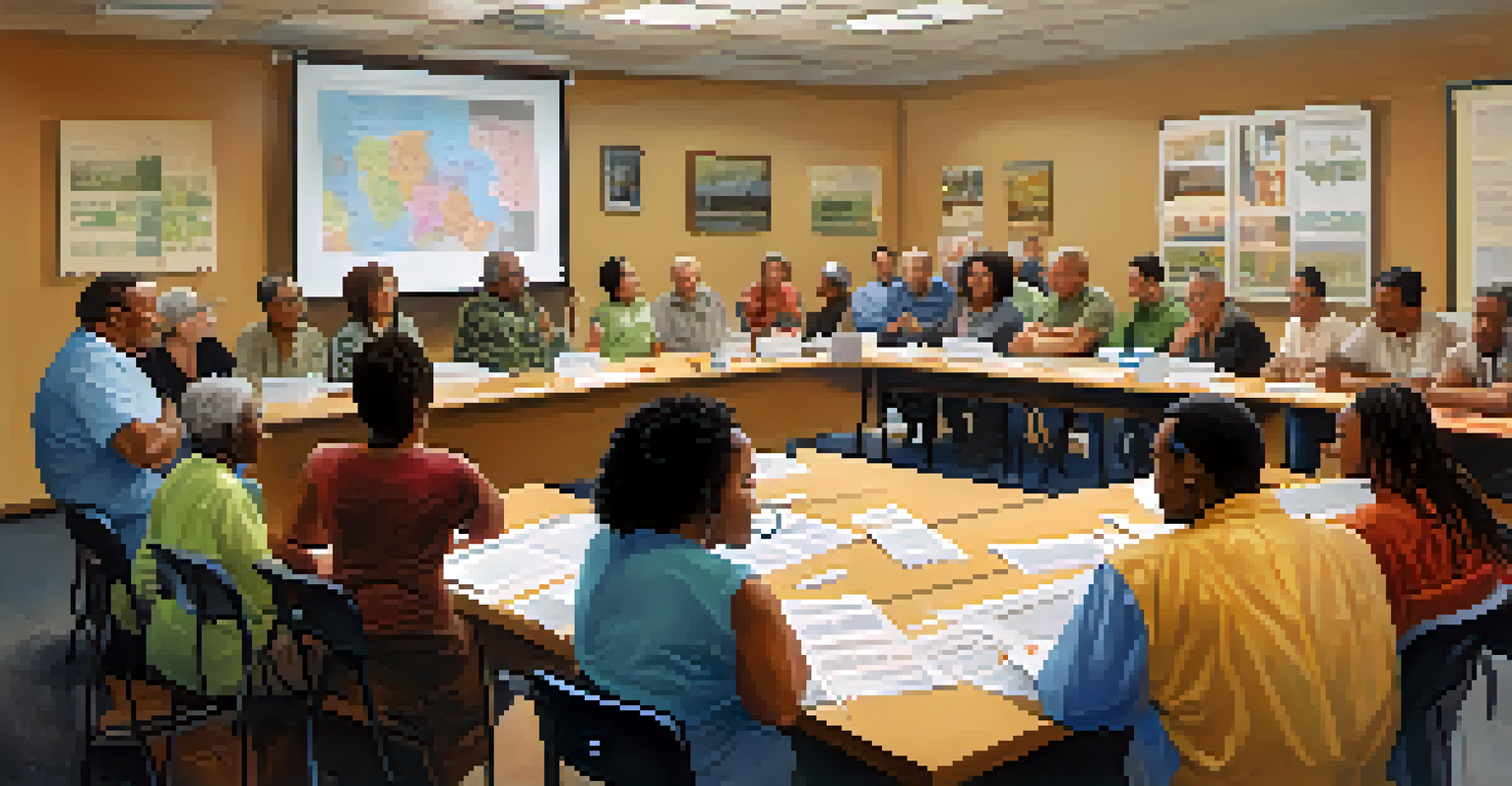Common Misconceptions About Homeowners Associations

HOAs Are Just for Controlling Homeowners' Lives
Many people view homeowners associations (HOAs) as strict enforcers of rules, but that’s not the whole story. While it’s true that HOAs set guidelines, their primary goal is to maintain property values and community appeal. Think of it as a neighborhood watch group that also happens to manage the aesthetics and overall well-being of the area.
Community is much more than belonging to something; it’s about doing something together that makes belonging matter.
HOAs often foster community spirit through events, gatherings, and shared amenities. Instead of just being rule enforcers, they work hard to create a pleasant living environment for everyone. The regulations are usually in place to ensure that one person's choices don’t negatively impact another's enjoyment of their home.
In essence, while HOAs do have rules, their purpose extends beyond mere control; they aim to provide a cohesive and enjoyable community for all residents.
All HOAs Are the Same with No Flexibility
A common misconception is that all homeowners associations operate under a one-size-fits-all model. In reality, HOAs can vary widely in their rules, fees, and services offered. Each association is tailored to its specific community’s needs and desires, resulting in unique experiences across different neighborhoods.

For instance, some HOAs focus heavily on landscaping and outdoor aesthetics, while others might prioritize recreational facilities or social events. This variety allows homeowners to choose an association that aligns with their lifestyle and preferences. Therefore, it’s essential to research and understand the specific HOA before moving in.
HOAs Maintain Community Value
Homeowners associations work to enhance property values and create appealing living environments through guidelines and community engagement.
So, when considering a property with an HOA, take the time to investigate its particular guidelines and benefits. You might find an association that perfectly matches your vision of community living.
You Have No Say in HOA Decisions
Many believe that once they join an HOA, their voice is silenced and decisions are made without input. However, most associations encourage resident participation through meetings and committees, allowing homeowners to share their opinions. This collaborative approach fosters a sense of ownership and responsibility among residents.
The greatness of a community is most accurately measured by the compassionate actions of its members.
Typically, HOAs hold regular meetings where homeowners can raise concerns and vote on important issues. Whether it’s about budget allocations or community events, your input matters. Engaging with your HOA can lead to positive changes and improvements in your neighborhood.
In short, being part of an HOA doesn’t mean relinquishing your voice; it’s an opportunity to actively shape the community you live in.
HOA Fees Are Just a Money Grab
Some people assume that HOA fees are merely a way for organizations to profit at homeowners' expense. In reality, these fees are essential for maintaining the community’s common areas, amenities, and services. From landscaping to pool maintenance, these contributions ensure that the neighborhood remains attractive and functional.
Moreover, the collected fees often go towards community events that foster neighborly connections, enhancing the overall living experience. This investment in your community can lead to increased property values, which benefits everyone in the long run. Therefore, viewing HOA fees as an investment rather than an expense can change your perspective.
HOAs Offer Flexibility and Choice
Not all HOAs operate the same; they vary in rules and services, allowing homeowners to find an association that fits their lifestyle.
Ultimately, while it might feel like another bill, HOA fees contribute significantly to creating a thriving community.
You’re Stuck with HOA Rules Forever
Another myth is that once an HOA establishes rules, they stay in place indefinitely without any chance for change. However, most associations have processes in place for reviewing and amending rules, often involving resident input. This ensures that the regulations evolve with the community’s needs and preferences.
For example, if a significant number of homeowners feel that a particular rule is outdated or restrictive, they can propose changes during meetings. The process usually requires a vote, allowing homeowners to have a direct impact on the governing documents. This adaptability is crucial for maintaining a harmonious living environment.
In essence, homeowners have the power to influence the rules that govern their community, making it a dynamic and responsive entity.
Living in an HOA Means Less Freedom
Many individuals fear that living in an HOA will strip them of their personal freedoms, but this isn’t entirely accurate. While there are guidelines in place, they are often designed to protect the overall aesthetic and harmony of the neighborhood. Think of it like having a dress code at a party—everyone has the freedom to choose their outfit, but there are some guidelines to ensure the event remains enjoyable for all.
Moreover, living in an HOA can actually provide more freedom in certain areas, such as access to amenities like pools, parks, and clubhouses. These shared resources can enhance your living experience and offer opportunities for social interaction with neighbors. It’s about balancing individual expression with community cohesion.
Resident Voices Matter in HOAs
Homeowners can actively participate in HOA decisions, ensuring their opinions shape the community's rules and regulations.
Ultimately, rather than limiting freedom, HOAs can create an environment where everyone can enjoy their homes and shared spaces.
HOAs Only Benefit Certain Homeowners
Some believe that HOAs primarily benefit only a select few, but this is a misconception. The benefits of a well-run homeowners association extend to all residents, as they collectively contribute to property values and community well-being. When a neighborhood presents a unified and appealing appearance, everyone stands to gain.
For instance, an HOA that organizes regular maintenance for common areas not only beautifies the neighborhood but also helps protect property values. This means that even if you’re not directly involved in HOA activities, you can still reap the rewards of a well-maintained community.

Therefore, the positive impact of an HOA is a shared benefit, enhancing the living experience for everyone involved.
Joining an HOA Is Always a Bad Decision
Perhaps the biggest misconception is that joining an HOA is inherently a bad decision. While it’s true that some associations may not meet expectations, many provide significant advantages to homeowners. From community engagement to enhanced property values, an HOA can greatly improve your living experience.
It’s essential to approach the idea of an HOA with an open mind and conduct thorough research. By understanding the specific rules, fees, and community vibe, you can determine if an HOA aligns with your lifestyle. The right HOA can offer a supportive framework for a strong, connected community.
In conclusion, rather than dismissing HOAs outright, consider the potential benefits they can offer—and how they might enhance your quality of life.